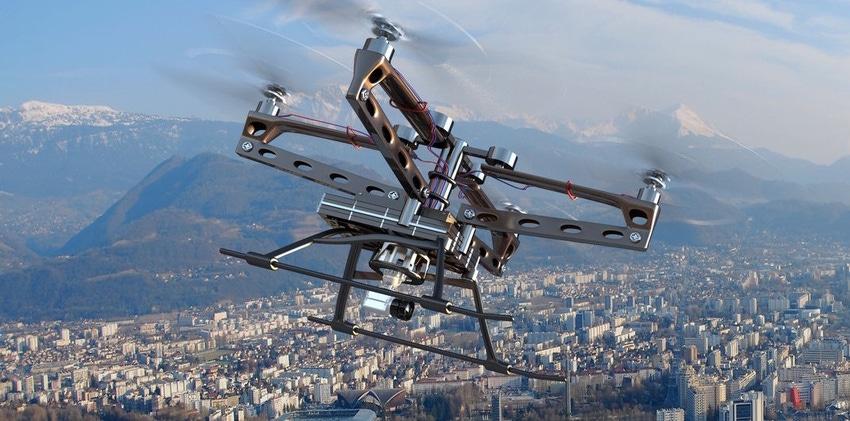Four in five UK residents would support the development of drone technology if the appropriate safeguards have been put in place.
January 23, 2020

Four in five UK residents would support the development of drone technology if the appropriate safeguards have been put in place.
While the report from Vodafone certainly lays the PR paint on heavy, targeting the drone usecases which very few people would be able to disagree with. 86% of the respondents to the survey agree with the use of drone for emergency response, 79% for police assistance and 61% for environmental conservation.
“Drones can provide crucial information to emergency services responding to incidents,” said Vodafone UK CEO Nick Jeffery. “They can assess fires, deliver medical supplies, and help businesses survey hazardous conditions such as construction sites, power lines and our own mobile masts quicker and more safely.
“On the flip side, rogue drones can pose security risks. By working in collaboration with government, the public sector and regulators, we can shape legislation to ensure the transition from a consumer toy to a vital support service while protecting our critical infrastructure.”
While emergency response and safety critical applications will certainly add benefit to the digital economy of tomorrow, it would be remiss to ignore the commercial applications of the technology.
For years, companies like Amazon or Dominos have been imagining a world where drone delivery is a reality. This a technological step forward which could not only simplify the process of getting certain goods from A to B, but from a financial perspective, remove the biggest overhead for these companies; employees.
Funnily enough, the prospect of redundancies or the skies being littered with delivery drones was not raised in the report.
As a technology, drones have been largely ignored but there are certainly benefits to the economy and society. For medical services, drones could be used to deliver prescriptions to those who find it difficult to leave the home, security can be enhanced at key locations and home delivery could be affordable for small businesses.
PricewaterhouseCoopers (PwC) suggests drones could add as much as £42 billion to UK GDP by 2030, as well as £16 billion in annual cost savings. The Department of Transport has predicted the number of licensed drones could grow from 100,000 in 2022 to up to 900,000 by 2050, not to mention the roads might be a bit clearer if some of the delivery vans or mopeds are removed.
There are of course benefits to the emergence of drones as a technology to aid with logistics and transportation, but it is also very fair to point out the negative consequences. Some jobs will be lost and we will have to get used to the whizzing and whirring of drones above our heads.
About the Author(s)
You May Also Like








.png?width=300&auto=webp&quality=80&disable=upscale)


_1.jpg?width=300&auto=webp&quality=80&disable=upscale)


.png?width=800&auto=webp&quality=80&disable=upscale)